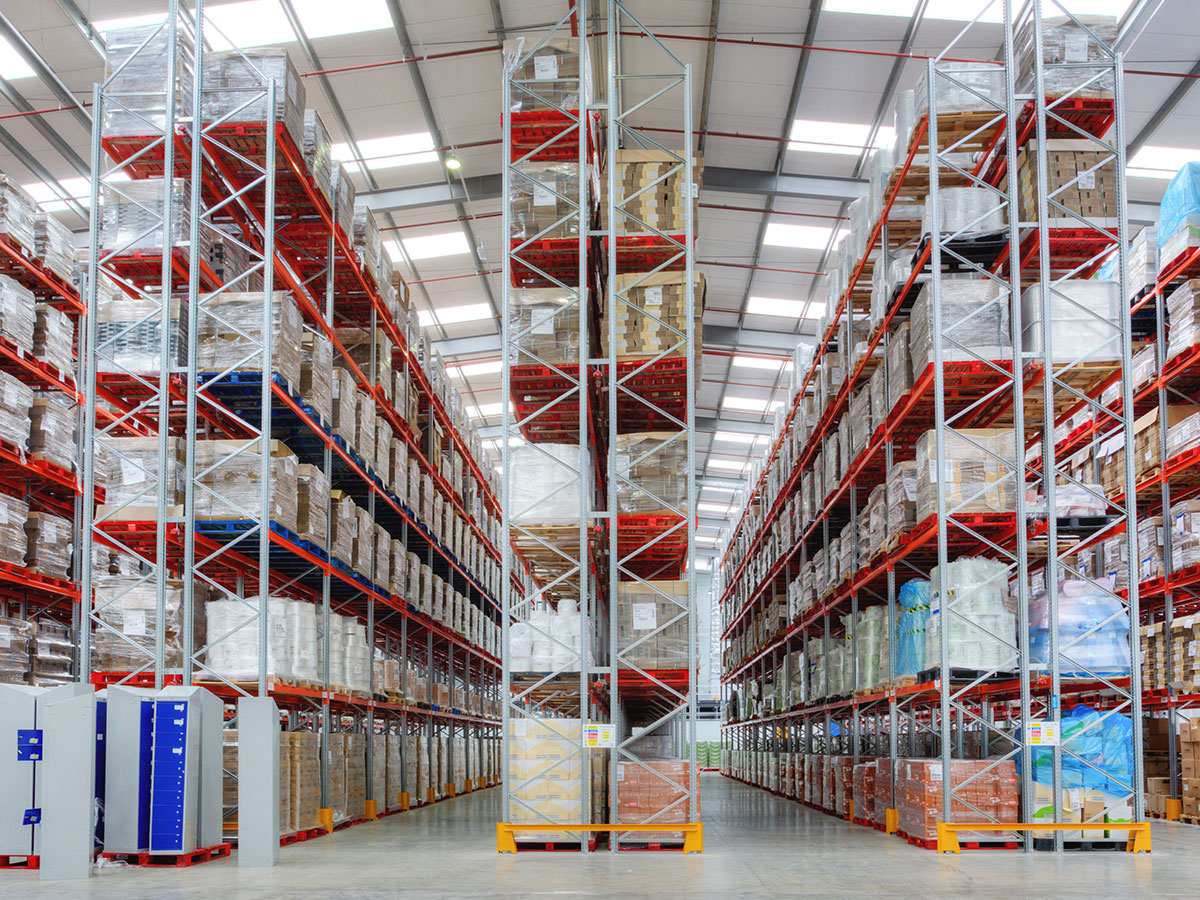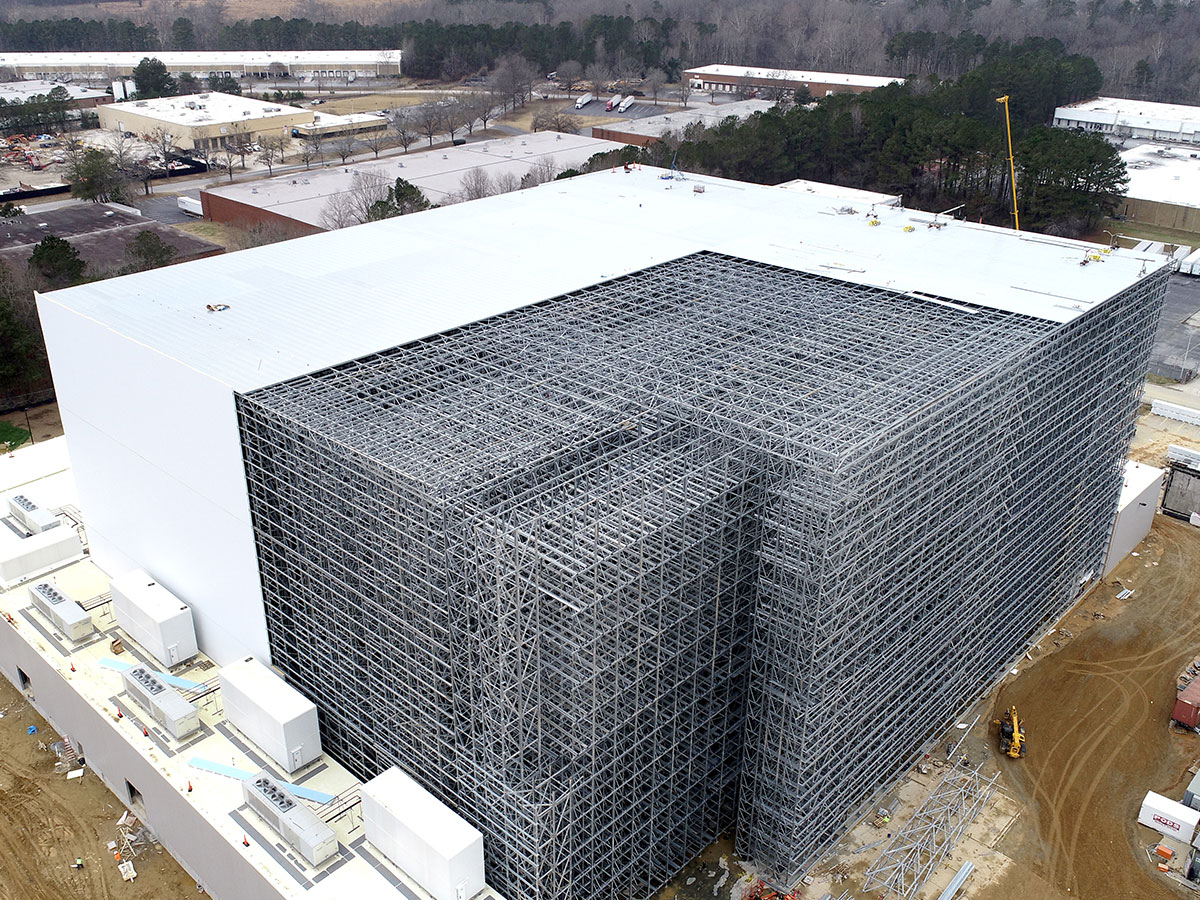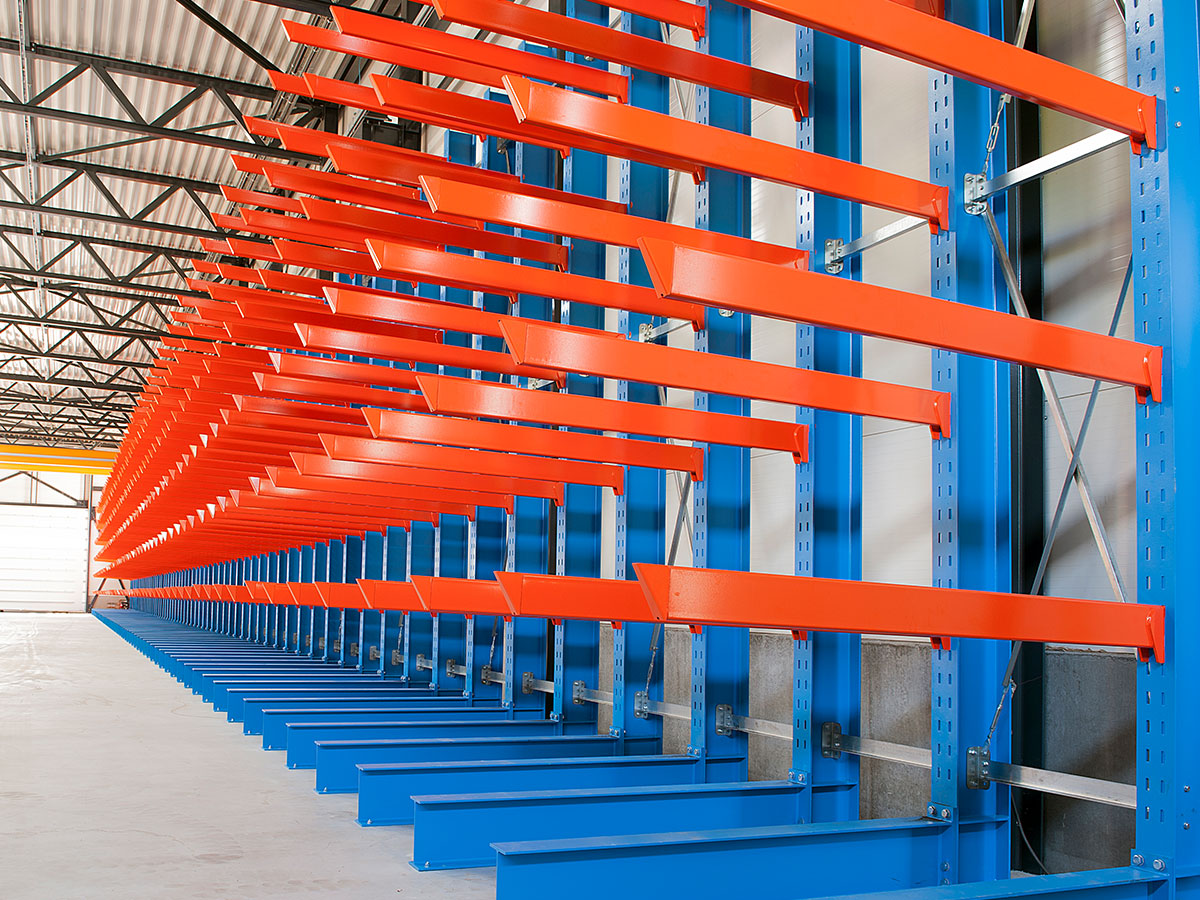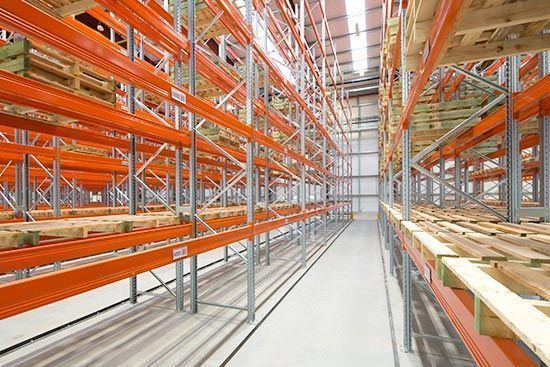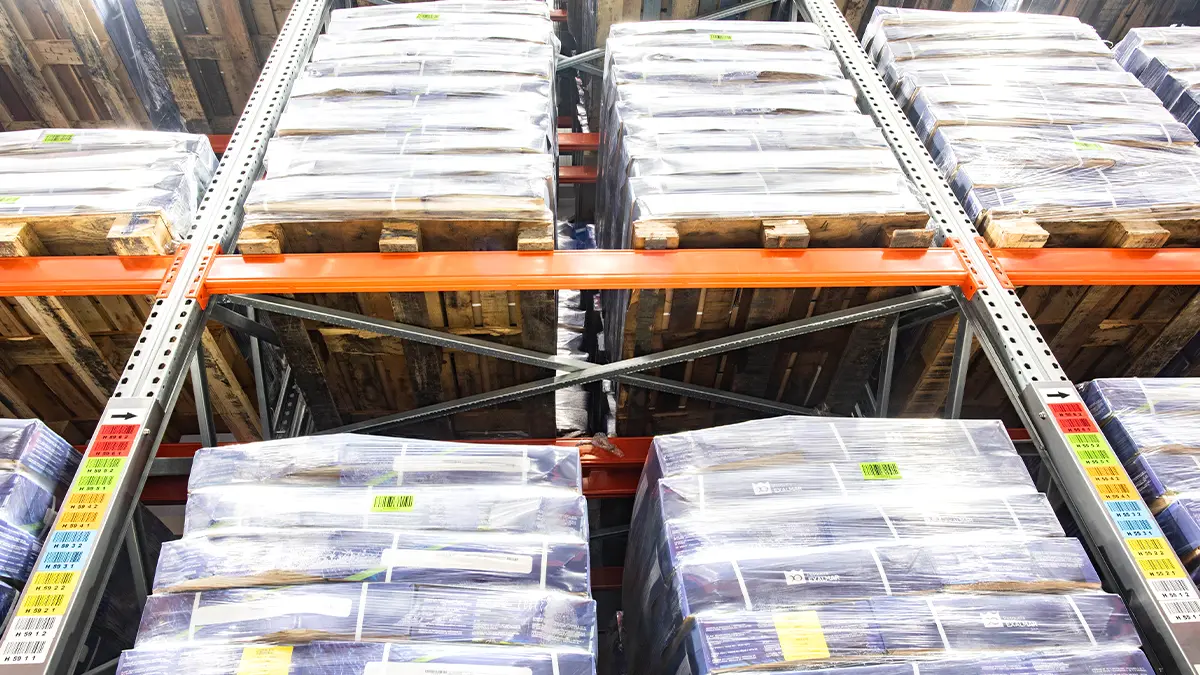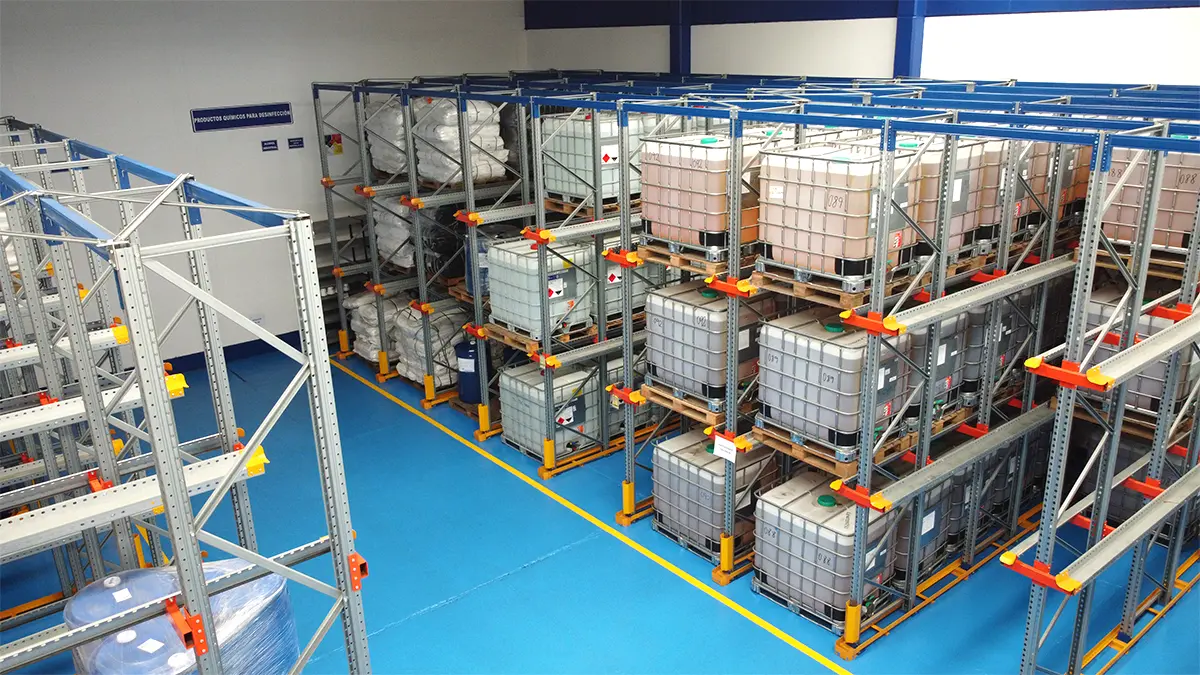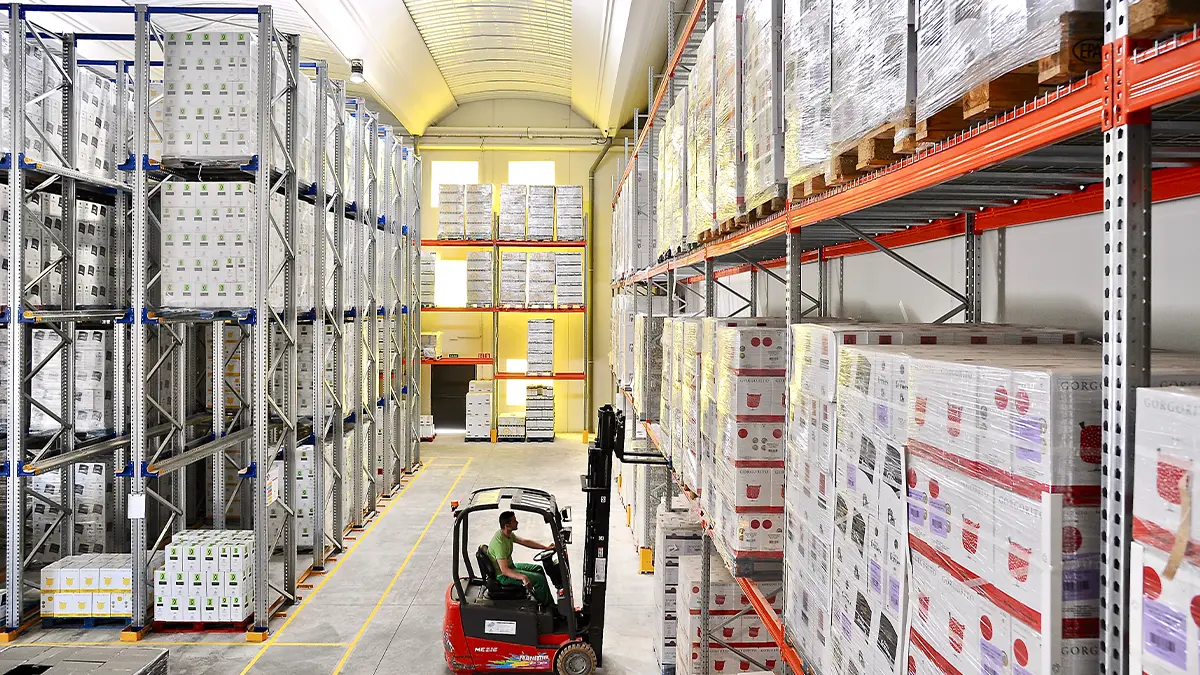The main element of storage systems is the industrial racking. The height of the racking and the distance between the different levels will depend on storage needs, the handling equipment and available space.
The components of the industrial racking system can be divided into standard and optional components or accessories, with the latter varying according to the type of industrial racking that you decide to use (adjustable pallet racking, compact racking, live storage racking, etc.).
The adjustable pallet racking system is the most simple and widespread storage solution and will be used as a reference to provide a breakdown of the most common components of racking used for industrial loads, whether they are standard components or accessories. This system for pallets has a wide variety of accessories and components for their adaptation to the storage of any type of products beyond conventional pallets.
Standard racking components for pallets
Adjustable pallet racking systems and most pallet storage systems have a simple main structure, consisting of frames, beams and safety pins.
Pallet racking frame
It is one of the standard components of adjustable pallet racking systems. It is a vertical structure, consisting of two or more perforated uprights, joined together by lattice work, designed to support the loading levels of a bay.
The frame also consists of the following components:
- Upright: is the main element of the frame. It is a vertical and structural component of the frame.
- Diagonal and horizontal profiles: these are the components that join and secure the two uprights that make up the frame.
- Baseplate: is a structural element joined to each upright which distributes the load over the floor and allows you to secure the base to it.
- Welded baseplate: the welded base is an adaptation of the conventional baseplate especially designed for frames of greater load and height.
- Fixing elements: these are the anchor bolts and screws to secure the frame and its components.
- Shim: component situated under the base plate to level the storage system. This option is used in warehouses on uneven floors.
Industrial racking beam
The beams are horizontal elements that support the load and join the contiguous frames, parallel to the work aisle. They have connectors which fit into the drill holes of the upright.
These connectors provide an extremely firm and safe joint system formed between the beam and upright, increasing load capacities and making the storage system durable.
The beams can be categorised according to their function (for pallets or picking) or according to their finish (painted, pre-galvanised or hot-dip galvanised).
Racking safety pin
This is an individual element that is placed on the connector that joins the beam to the upright and prevents accidental displacement of the beam. It is an approved component that enhances the safety of the structure. It is a reliable and simple safety system that enables correct and rapid use with the naked eye.
Optional adjustable pallet racking components
There are many optional accessories or components that can be incorporated in industrial pallet racking storage solutions to meet the specific needs of each customer.
Some of these components are:
Mesh panel (protection and fall-arrest)
Metal mesh panels for racking systems are an element used as a load level to support the goods of the pallets and their different loads. The rectangular mesh is attached to the support bars which gives the structure rigidity. The unit is placed on the beams without the need for extra fixings. Meshes can also be installed for picking, adapting the solution to the measurements and weights of the products required by each customer.
Galvanised tray
It fits directly onto the beams without the need for extra fixings. It is an accessory for industrial racking used in combination with picking beams. They can have a smooth or grooved surface.
Chipboard panel
Chipboard panels (also called boards) are optional components that can be used in different ways on the racking system. It can be placed directly on the beams with the aid of retainers at the ends for better fixing. Depending on the load, support bars must be placed to support the unit load.
Support bars
These are structural components that are perpendicularly secured to the beams and, depending on the type of support bars installed, enable the placement of pallets, panels or a load that does not need palletising.
Container support
Container supports are an industrial racking accessory used when the unit load to be stored are containers with legs at their ends. It consists of a set of 2 supports crossly arranged on the beams.
Pallet backstops
Single and double pallet backstops are preventive safety backstops. Their main function is to prevent the pallet from falling in case of an inappropriate manoeuvre. These industrial racking accessories consist of a metal profile set on top of 2 arms bolted to the sides of the uprights.
“Kibi” pallet backstop
They are crossly arranged on beams in storage systems for double runs. Its function is to also warn and prevent the pallet from falling in case of an inappropriate manoeuvre with the unit load.
Floor pallet backstop
They are an optional element different to the other backstops. They are fixed to the floor to serve as a warning and to retain unit loads placed on the floor. They can be either single or double.
Protection meshes
Protection meshes are mesh panels used as a protection element on both the base and on the sides of the racking. It is an industrial racking safety element that prevents unwanted displacement or falling of the unit loads. They can be either nylon or metal. The flexibility of the nylon type mesh makes it able to fully recover its original state after any incident.
Upright protector, upright reinforcement protector or side frame protector
The general function of all of these protectors is to protect the racking from any impacts produced in the daily operations of a warehouse. More information on this post.
Corner protector
Corner protectors are an alternative option when it is not possible to install upright protectors. They protect the external uprights of the industrial racking system, are fixed to the floor and are made of sheet metal. Their design can either be smooth or grooved, according to needs.
Drum and cylinder supports
These supports fit directly on the industrial racking beams. Their function naturally is to facilitate the storage of special cylindrical loads, mainly drums. They consist of a set of 2 elements that are fitted into the beams to support the front and rear of the drum. Two “L” shaped elements welded to each of the units immobilises the cylindrical load on the rack. This adapted support allows you to handle the loads while stored in complete safety.
Coil Racks
They enable the simple storage of any material wound on the coils (cable, rope, cloth, etc.). These side supports need a central metal axle on which the spools or coils can rotate and are installed on the base structure of the adjustable pallet racking system. The side coil support is fixed to the sides of the frame. 2 parts placed in parallel are needed for their operation.
Signs
In this group there are three types of relevant information indicators for the operation of the warehouse and the correct use of the racking system:
- Markers: The markers are rectangular metal plates that are placed on the external parts of the racking to indicate with letters and numbers the different aisles of the installation. The plate is fixed to the upright in different ways as required.
- Load warning notice: component displayed in permanent locations of the racking to provide personnel with information for the safe use of the storage system. More information on this post.
- Vinyl load label: is an identifier indicating the load capacity of each beam. This helps ensure safe use of the storage system, reducing risks and any confusion when loading and unloading. It is placed directly on the beam.




